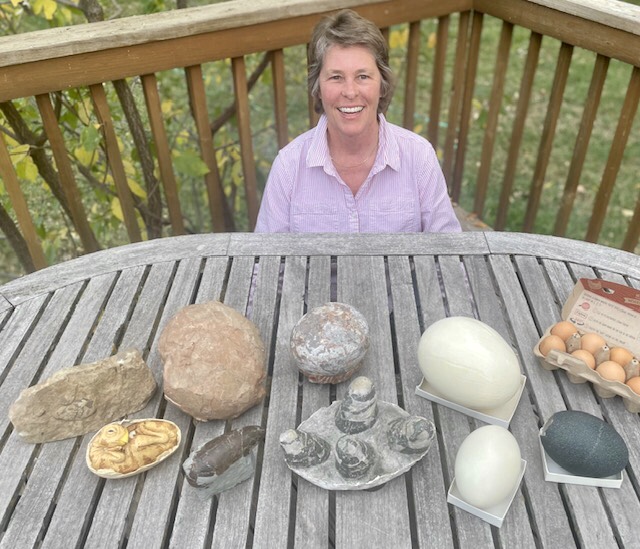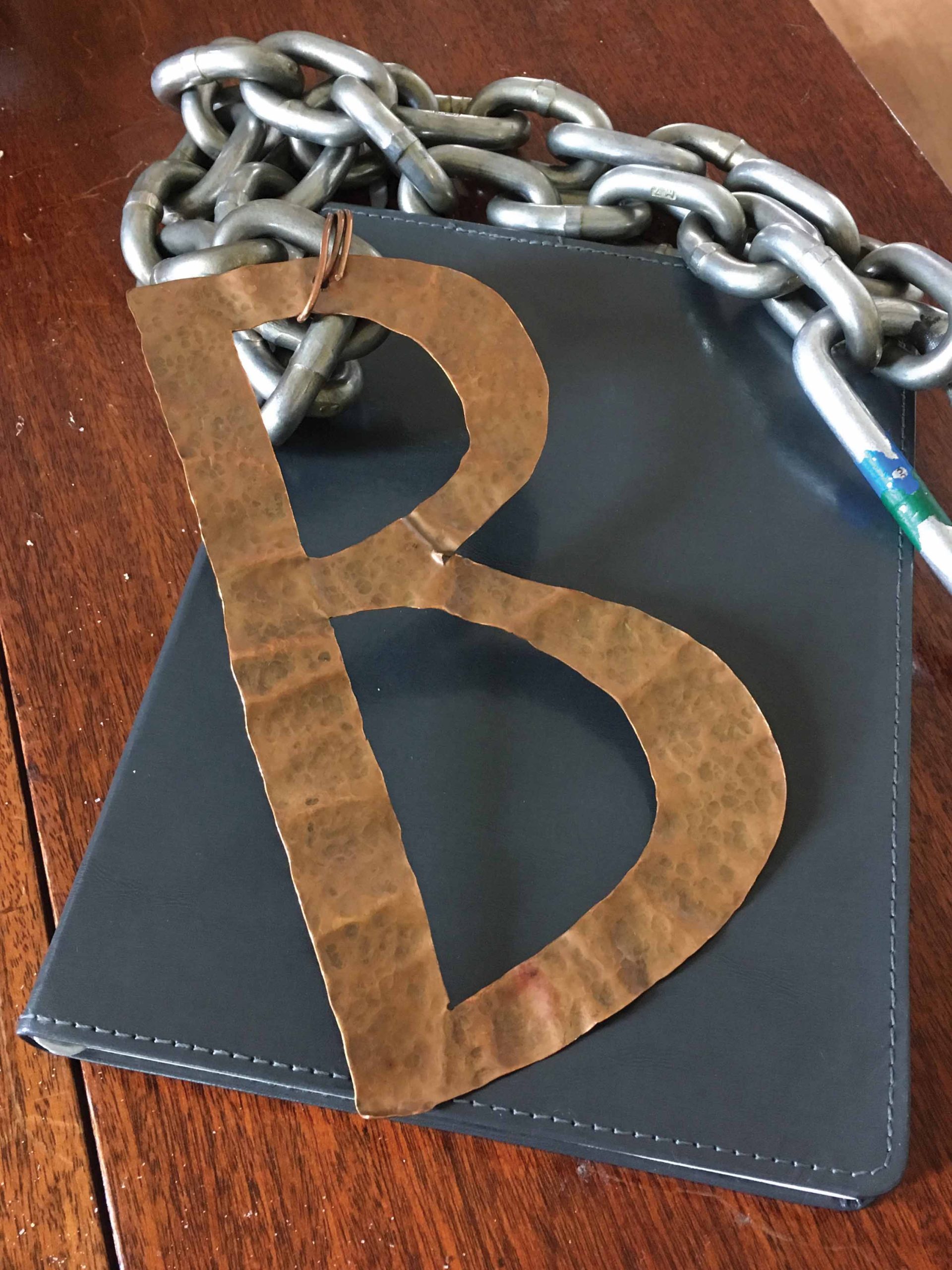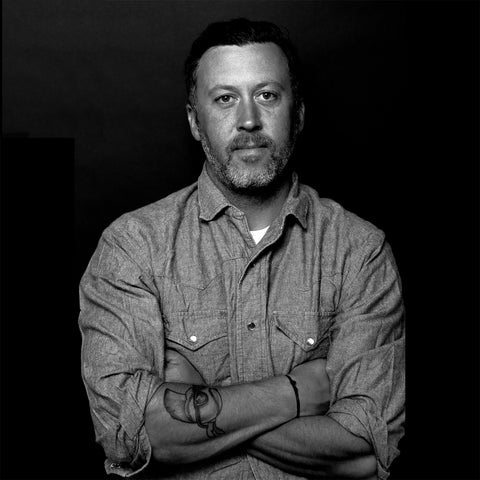New Cultures, New People: Virginia Sher Ramadan ‘70
Law Professor and Diplomat Reflects on Our World and the Impact of CRMS
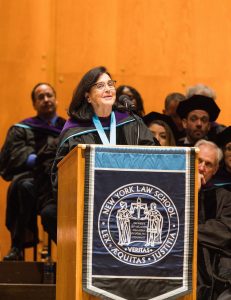
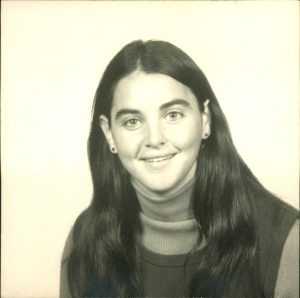 Raised in west L.A. but loving the outdoors after years attending a summer camp in Trinity County California as a young girl, Virginia “Ginny” Sher found her way to CRMS in 1968. She told her parents she wanted a smaller school environment than her Pacific Palisades high school offered, and they hired a secondary school advisor to help her find the perfect place. With her parents both being from the East Coast, they knew that their daughter might thrive at a boarding school but were unsure of the best one.
Raised in west L.A. but loving the outdoors after years attending a summer camp in Trinity County California as a young girl, Virginia “Ginny” Sher found her way to CRMS in 1968. She told her parents she wanted a smaller school environment than her Pacific Palisades high school offered, and they hired a secondary school advisor to help her find the perfect place. With her parents both being from the East Coast, they knew that their daughter might thrive at a boarding school but were unsure of the best one.
“It was the Putney School influence that convinced my parents that CRMS would be a good school academically, and a good fit being located in the country, in the mountains,” she remembers. CRMS offered Ginny a framework for engaging the world.
“I have always loved traveling and learning about new cultures and meeting new people. Those were the aspects of CRMS that initially appealed to me and that I particularly enjoyed as a student. I learned as much from my diverse classmates about different cultures and varied interests as I did from my teachers.”
“It was at CRMS that I fully developed my love affair with foreign languages. I recall taking an advanced Spanish literature course from a very strict but academically challenging teacher, Joe Frank, and to this day remember passages from one of the novels, La Celestina by Fernando de Rojas.”
After graduating from CRMS in 1970, Ginny enrolled at the University of Oregon, where she received a scholarship to study at the National Autonomous University in Mexico City. While in Mexico she realized that she wanted to pursue a career that allowed her to travel and use her Spanish language abilities. She transferred to Georgetown University to obtain her Bachelors of Science in its lauded School of Foreign Service with the aim of eventually joining the State Department as a U.S. diplomat. Ginny strengthened her credentials following graduation with an MBA in international management from ASU’s Thunderbird School of Global Management, while there learning Portuguese to broaden her Latin American expertise. She ventured abroad again, this time in Rio de Janeiro, Brazil, where she worked as a journalist for the Brazil Herald. When she entered the Foreign Service, the State Department noted her Portuguese language ability and assigned her to Sao Paulo, Brazil as a political reporting and consular officer.
“Many are afraid of change; I, on the other hand, thrive on it and loved the opportunity to change countries every few years in the Foreign Service,” she says. “But what is most important to me is doing something that benefits others while working to achieve a goal that adds value to someone or an organization or group. Community or public service – with an international twist – was always of primary interest to me.”
While pursuing her MBA in Arizona, Ginny met her future husband, Walid Ramadan, a Lebanese (now American), who she married while she was learning Arabic in Tunis, Tunisia during her second tour in the Foreign Service. Following the birth of their first child, Ginny left the Foreign Service to pursue her second passion: law. After completing her Juris Doctor at New York Law School, in 1984, and working at a prestigious law firm in New York City. Ginny obtained a master’s degree in International Law from Columbia Law School in 1986. She then joined the faculty at NYLS as a professor and over a 14-year span taught core courses in Property Law and Wills, Trusts and Future Interests, Immigration Law, and International Business Transactions, while raising four children.
Missing life abroad, she reentered the Foreign Service in 2000, returning to Brazil where she implemented the first country-wide fraud prevention program to combat illegal immigration, identity fraud, and human trafficking. Throughout the rest of her career in the Foreign Service, she served in Libya, The Bahamas, Lebanon, Iraq, Mexico, and lastly Saudi Arabia, using her language and diplomatic skills to advance rule of law and immigration programs and policy. Her assignment as the State Department Professor of Strategy and Policy at the US Naval War College allowed her to combine her teaching skills with her international diplomacy. She retired from the Foreign Service in 2017.
Ginny’s knowledge of and perspective on the world today is vast but thoughtful. In her October 2019 acceptance speech for NYLS’s President’s Medal, given to the school’s most accomplished community members, Ginny makes a spirited argument for the power of the U.S. legal system on the global stage. Amidst the health, economic, and social justice challenges facing our country, the United States must walk the talk, as the saying goes, and there is much work for the next generation to do.
“A significant portion of my Foreign Service career was spent developing, getting congressional funding for and implementing police development, rule of law and educational programs in Libya, Lebanon, and Iraq. Recent onerous restrictions on immigration, international study and work programs, and refugee admissions work against our longstanding U.S. foreign policy goals of creating a world based on stable laws, norms, and consistent implementation and understanding through intercultural exchanges. Our rule of law and police programs abroad will be much more difficult to implement as countries see our disregard of these same values.”
And yet, Ginny conveys optimism about the future in front of CRMS students as they take their place in the world. When asked about the unparalleled opportunities and expectations facing young students, including young women, in today’s global climate of uncertainty, she remains hopeful and speaks with a sense of learned resilience. The hurdles and roadblocks that naturally arise in our earlier years can often be a matter of perspective. A CRMS education prepares students to choose their perspective.
“Life is a challenge, particularly nowadays. But if you encounter setbacks in your life or career because of perceived or real bias, find ways to get around those setbacks, either by working harder than anyone else, or, if that fails, through assertion of your legal rights, or by taking advantage of the impediment by seeking new opportunities. I can recall during my second tour in the Foreign Service when I was studying Arabic in Tunisia, the Ambassador to Kuwait broke my follow-on assignment as an Economic Officer in his Embassy because I got married to a Lebanese who worked for an influential Kuwaiti. I fought back with the State Department and tried to explain how my marriage would not impede my job, but could actually help it through my connections. I was not successful. But I was so angry that I left the Foreign Service and went to law school and became a lawyer and law professor. I loved my years teaching and doing pro bono legal work, and would have missed that professional opportunity had I remained in the Foreign Service.”
If one of the through-lines of her life has been service to others, Ginny draws back to the role of community service and care for others that defines a CRMS education. “I loved the community work projects at CRMS – picking rocks on neighboring ranches, driving the trucks to collect the garbage around campus while pulling a trailer that constantly jack-knifed since I had no idea or experience with what I was doing.”
Ginny’s remarkable experiences are the essence of CRMS lived on a global stage.
Watch Virginia Ramadan’s New York Law School President’s Medal Speech.
 MYCRMS
MYCRMS
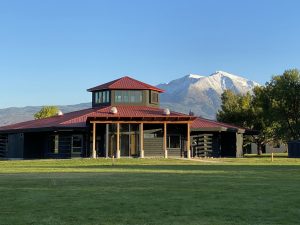
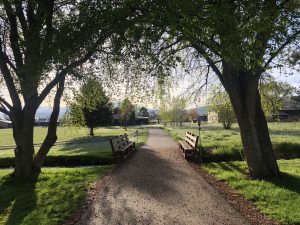
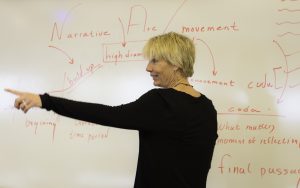

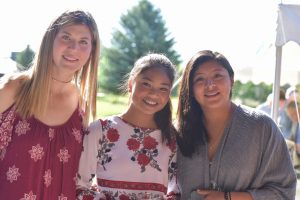
 Virtual Tour
Virtual Tour